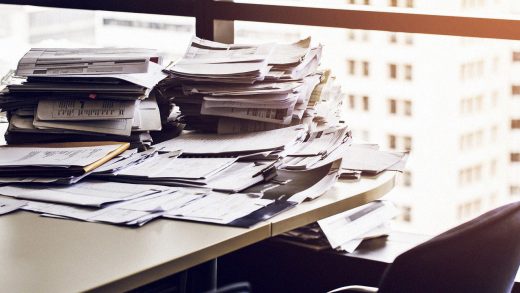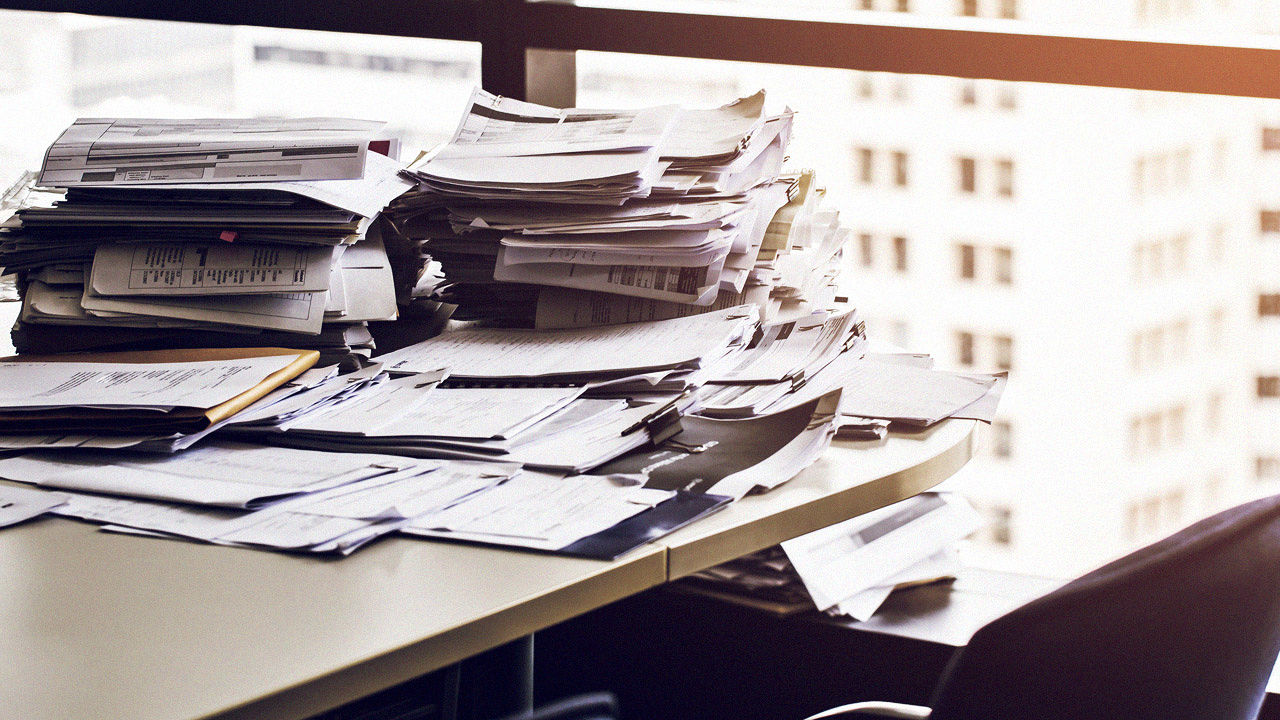Three Ways Your Workspace Is Quietly Hurting Your Productivity
For most of us, our workspace is what it is. If your employer has cubicles or one long communal table, then that’s where you work, and the best you can do is adapt. The trouble is that many of us don’t adapt to less-than-ideal work environments as well as we could. More often, we just put up with them.
And in the process, we adopt a few common work habits that wind up making us needlessly spend a lot of extra mental effort just to stay focused. Chances are they won’t even come as a surprise. But here’s a look at why they’re such a drain on our productivity, and some easy steps to take to get past them.
1. Desk Clutter
Clutter creeps up, especially when we’re busy. The memo you almost finished, a request from a friend, receipts to reimburse, and who knows what else sit desperately demanding your attention. Like a dragged-out break-up, you’re afraid to let your clutter go, but wince when you have to confront the fact that it’s still around.
Does it really matter if your cluttered workspace is mildly annoying, as long as you’re still getting work done? It’s a fair question. Of course it would feel nicer to sit at a clean desk, but you don’t need things to be pretty, you just need to work. The time it would take to clean things up might be better spent on that project whose deadline is looming, right?
Well, not exactly. And the reason has to do with your brain’s attention systems, which aren’t designed strictly to keep you focused. They’re designed to help you pick up on what’s changing, threatening, novel, and so on. In other words, they help make sure we don’t miss what’s important in the environment. In fact, staying focused too easily and for too long would pose an evolutionary threat. We’d die if we regularly concentrated so hard on a given task that we failed to notice the people, cars, tigers, or falling objects coming at us. So we have these brain systems regularly scanning for something to shift attention onto.
We don’t usually leave tigers and moving cars on our desks, of course, but the kinds of things we do leave there are especially hard to tune out. Research shows that people tend to leave things on their desks as reminders. If you think about what kinds of things you don’t finish and need reminders for, you’ll find that many of them signal hard and time-consuming tasks, and being reminded of them feels overwhelming.
What’s more, many are tied to social obligations at work: Somebody you know personally is waiting on just about every one of those tasks that your desk clutter is reminding you about. The human brain devotes a lot of processing power to navigating social obligations, so we can reasonably expect that when our attention lands on those reminders, they’ll be especially hard to tune out.
Research suggests that the self-control needed to keep resisting these various reminders further wears down our executive functioning, which includes tactical things like our capacity for focused attention and decision-making. As those mental powers diminish, otherwise routine work gets harder to complete and takes longer.
2. Background Noise, Especially Chitchat
But there’s another consequence of our naturally powerful attraction to social information. Working where there are other people talking is a killer when it comes to focus. Whether it’s because the company is saving money, because it’s so hip and cool-looking to have open-plan shared spaces, or because we can now work anywhere as long as we bring our laptops and smartphones, the fact is that we now wind up working in places where other people are talking.
And the research on noise is pretty straightforward: Simply put, it harms concentration. Yes, that includes white noise and music, for the most part. But the hardest noise of all to tune out is human speech. Your colleague on the phone, that loud guy from sales who paces the halls, the woman at the coffee shop describing her recent surgery in lurid detail—they’re remarkably hard to tune out for any meaningful length of time.
The same way making a video call drains your smartphone battery, the extra mental effort needed to filter out chitchat while you’re working depletes your executive functions fast. It makes you work harder than you need to.
3. Bad Lighting
Speaking of working harder than you need to, there are other ways we do it besides working with clutter and noise—and this one is less intuitive. Many people think of lighting as a preference thing, when they think about it at all. Restaurants use it to try to affect your mood, for example; dim, yellowish light is warm and welcoming. Really dim light gives the illusion of privacy and, of course, makes everyone look better. But for most people, trying to focus on work is a very different context than dining or dating.
Your eyes are actually equipped with photoreceptors that aren’t just for vision. Instead they influence things like your circadian clock. These photoreceptors react to cool light (the bluish end of the spectrum, like the light of a clear blue sky), which research has shown makes people better at executive functions. Less surprising, but no less useful, is the finding that bright light is helpful for much the same types of focus-based activities.
Some people would rather avoid fluorescent office lighting at all costs. If that’s you, then it’s worth bringing in a good lamp. Many people will absentmindedly leave the shades drawn all day, but that natural light can make a real difference to your attention and productivity.
So the steps you can take to make some changes won’t be revolutionary or even all that difficult, but they can still have a real impact:
- Bite the bullet and sweep away the clutter. Don’t even waste time going through it—just pile it out of sight and come back to sort it after you’ve finished the important work for the day.
- Go somewhere quiet, or just go online right now and order a pair of noise-canceling headphones. It’ll be worth it.
- Sit by a window or find a spot where you can have some brighter light.
If you can’t make these changes right away, all hope is not lost. Try taking it in small bites rather than overhauling your workspace all at once. After all, keeping a productive work environment is a constant battle that takes periodic maintenance. So look at your day and decide what really needs your focus. Make some changes just for that work. You can almost always change your environment for at least a short while, even if you’ll need to go back and tweak or restore those changes again later. The key is to get started.
The ideas and research in this article are adapted from Two Awesome Hours: Science-Based Strategies to Harness Your Best Time and Get Your Most Important Work Done by Josh Davis
Related Video: The Life-Changing Magic Of Having Marie Kondo Organize Your Office
Fast Company , Read Full Story
(44)














